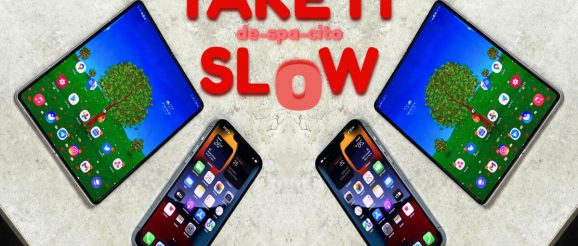A story of rushed Android phones: How Apple’s iPhone is winning in (slow) innovation

So, as it turns out, some Android phone-makers launch phones with extremely obvious software and sometimes even hardware issues. Before we continue, and because I know the “what about Apple” conversation is on the way – yes,
iPhones are far from perfect
When will big phone-makers stop using users as Guinea Pigs?
Galaxy S22 Ultra: Not the camera upgrade the S21 Ultra deserves
If you’d like to find out more, take a look at our Galaxy S22 Ultra vs iPhone 13 Pro Max vs Pixel 6 Pro camera comparison.You don’t have to take my word for it.
Google Pixel 6: The most embarrassing Google launch for the best Pixel ever
Speaking of the Pixel 6, I can’t avoid mentioning the abundance of software bugs that have troubled Google’s ambitious flagships. It’s seriously hard to name all the bugs even for me, who uses a Pixel 6 Pro daily.
It was everything from a painfully slow fingerprint reader, annoyingly jumpy auto-brightness, and even a totally broken fingerprint reader, which my cousin had to tolerate for months before a fix arrived.
Speaking of fixing things, Google did indeed address most if not all of the Pixel 6’s bugs, but what’s hard to believe is the speed with which the search engine giant reacted to the problems.
Google Pixel 6: The most embarrassing Google launch for the best Pixel ever
Galaxy S20 Ultra: Focus Pocus, Failed Autofocus
Rhyme focus with focus? Totally.
We’re back with Samsung.
Galaxy S20 Ultra: Focus Pocus, Failed Autofocus
The interesting thing is that the Galaxy Note 20 Ultra, from the now-dead Note lineup, launched just six months later, and this device felt like what the S20 Ultra was always meant to be (but never was).
Microsoft Duo: Windows phones weren’t Microsoft’s biggest flop after all
Sorry, Microsoft. Take your time with the Duo 3.
Galaxy Fold: Samsung had to apologize for this one
Samsung is like Adele on a Grammy night. It just keeps coming back on stage.
Galaxy Fold: Samsung had to apologize for this one
To get to the point, the first-gen Galaxy Fold felt like a prototype device that somehow managed to escape the boardroom and jump into reviewers’ hands and, of course, later onto the shelves.
The ridiculously tiny front screen, massive crease and inner notch made the Fold a mishmash of the worst phone-tablet combo, but the wonky hinge and damage-prone plastic screen were what made it unfathomable.
Samsung’s CEO apologized to everyone, admitting that the phone was rushed and review units were recalled. Similarly to the Microsoft Duo 2 case, Samsung is yet to address some of the imperfections of the very first Fold.
In the end: Why do Andorid phone-makers rush to deliver new phones and features?
But the same can’t be said about certain progressive Andorid phones today. At least not while we keep getting new Android flagships with unoptimized new processors, camera sensors, and software.
Naturally, a big reason for such mishaps is that too many Android phone-makers try to compete to be first in introducing some features that often perform poorly. Android phones have always needed something that makes them stand out in the sea of alternatives, so they are much more likely to take a risk than Apple’s iPhone.
Why Apple wins in (slow) innovation
Why Apple wins in (slow) innovation
But I dare to say I’ve also noticed another interesting pattern, this time from the customer’s perspective. It appears as if Android users are more inclined to tolerate bugs and even hardware problems on phones because they are way more likely to opt for cutting-edge tech (on flagships), which isn’t always mature. Or, some Android users pay less for a budget device without having high expectations, which naturally leads them to believe it’s OK for the phone to underperform.
Let’s start making reliable phones
Regardless, the one thing I know is that reviewers, or let alone customers, shouldn’t be the ones who test-drive phones which cost more than a used car in Eastern Europe.
The Galaxy S22 Ultra should have a reliable camera right out of the box, given that its predecessor did and that the camera experience is this phone’s main focus. The Pixel 6 should’ve had a usable fingerprint reader right when it launched, not five months later. And experiments like the Galaxy Fold and Microsoft Duo just shouldn’t exist.
Let’s start making reliable phones
Sorry not sorry to bring up Apple again, but you just know that the iPhone-maker just won’t make its customers pay $2,000 for a prototype of a foldable iPhone. Sure, Apple is slow at innovation, but that’s partly why its customers find Apple products less risky.
On the bright side, there’s plenty of time for improvement. Slab phones are going as strong as ever, so Samsung, Google, Motorola, and even Apple will have plenty of chances to redeem themselves and sell phones that work as they should.
And when it comes to the cutting edge stuff, we’re still waiting for the real slab replacement – the rollable/slidable phones. It’s expected that someone between Samsung and Oppo will be the first manufacturer to launch such a device sometime in 2023, and I just want to say it right now:
Please. We don’t want another Galaxy Fold. Push it back to 2024 if necessary. Make it usable. We shouldn’t have to beta-test your phones for you.
